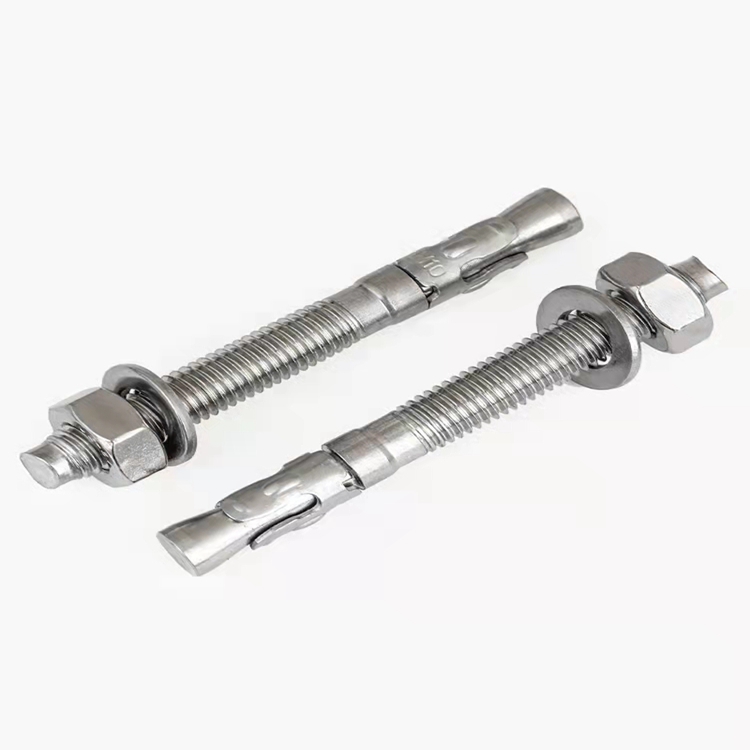Bulk Suppliers of Drywall Screws for Exporting Worldwide
Nov . 26, 2024 21:20 Back to list
Bulk Suppliers of Drywall Screws for Exporting Worldwide
The Role of Bulk Drywall Screws Exporters in the Global Construction Industry
The construction industry is a cornerstone of economic development, providing not only employment opportunities but also contributing to infrastructure growth. Among the numerous materials used in construction, drywall screws play a crucial role, especially in the assembly of walls and ceilings. These specialized screws are designed to fasten drywall sheets to wooden or metal frames. As the demand for drywall products grows, so too does the need for reliable and efficient bulk drywall screw exporters.
Understanding Drywall Screws
Drywall screws are designed with a sharp, pointed tip and a coarse thread, allowing them to penetrate drywall without damaging the material. Unlike regular screws, drywall screws have a bugle-shaped head that allows them to sit flush against the surface of the drywall. This feature prevents any bulging under subsequent layers of paint or other finishes, resulting in a smooth and professional-looking surface. The availability of various sizes and lengths makes these screws versatile for different applications in the construction sector.
The Growing Demand for Bulk Drywall Screws
With the global population on the rise and urbanization accelerating, the construction of residential and commercial spaces is booming. This surge in construction activity drives the demand for drywall materials and subsequently, drywall screws. Builders and contractors often prefer to purchase these screws in bulk to ensure they have sufficient stock for large-scale projects, thereby minimizing delays and optimizing efficiency.
In addition, the increasing popularity of do-it-yourself (DIY) projects has contributed to the demand for drywall screws. Home improvement enthusiasts and tradespeople alike are seeking bulk purchasing options to facilitate renovations and constructions, creating a broader market for drywall screw exporters.
The Role of Exporters
bulk drywall screws exporter

Bulk drywall screw exporters play a vital role in the supply chain by providing large quantities of screws to contractors, retailers, and distributors worldwide. These exporters serve various geographical regions, ensuring that the screws are accessible wherever construction is taking place. Companies engaged in exporting drywall screws take pride in their ability to offer high-quality products, competitive pricing, and efficient logistics.
Quality is paramount in the construction industry. Exporters often collaborate with manufacturers who adhere to strict quality control standards to ensure that the products meet international specifications. This includes using corrosion-resistant materials that enhance the lifespan of the screws, which is particularly important in regions with high humidity or varying temperatures.
Market Trends and Challenges
The international trade of bulk drywall screws is influenced by several market trends. The rise of sustainable building practices has led to increased demand for eco-friendly and recyclable products. Consequently, drywall screw exporters who can source or manufacture green products may find a competitive advantage in the marketplace.
However, the industry faces challenges such as fluctuating raw material prices, trade tariffs, and stringent import/export regulations. Exporters must navigate these obstacles while maintaining profitability and reliability. Additionally, the ever-evolving technology landscape means that exporters must keep abreast of advancements in manufacturing processes to remain competitive.
Conclusion
As the construction industry continues to expand and evolve, bulk drywall screw exporters are positioned to play an integral role in facilitating this growth. By addressing the needs of the market for quality, cost-effective, and sustainable fastening solutions, these exporters contribute significantly to the efficiency and effectiveness of construction projects around the world. Through innovation, quality assurance, and strategic partnerships, they not only help construct buildings but also help build the future of the global construction landscape. As we look ahead, the importance of these exporters in the supply chain cannot be overstated, underscoring their vital contribution to the industry's ongoing success.
Latest news
-
High-Quality Panel Stud Bolt Reliable Panel Stud Bolt Factory & Suppliers
NewsJul.08,2025
-
High-Precision Fine Thread Locknuts Manufacturer & Supplier Custom Solutions
NewsJul.08,2025
-
PH Imperial Stud Bolt – High Strength Fasteners from Leading Supplier & Factory
NewsJul.07,2025
-
High-Quality Allen Wrench Bolts Leading Factory, Company & Suppliers
NewsJul.07,2025
-
Wholesale Ball Stud Bolt - High Quality Supplier & Factory Price Reliable Wholesale Ball Stud Bolt Company
NewsJul.06,2025
-
High-Strength Alloy Bolts Manufacturer & Supplier Quality Alloy Fasteners Factory
NewsJul.06,2025
